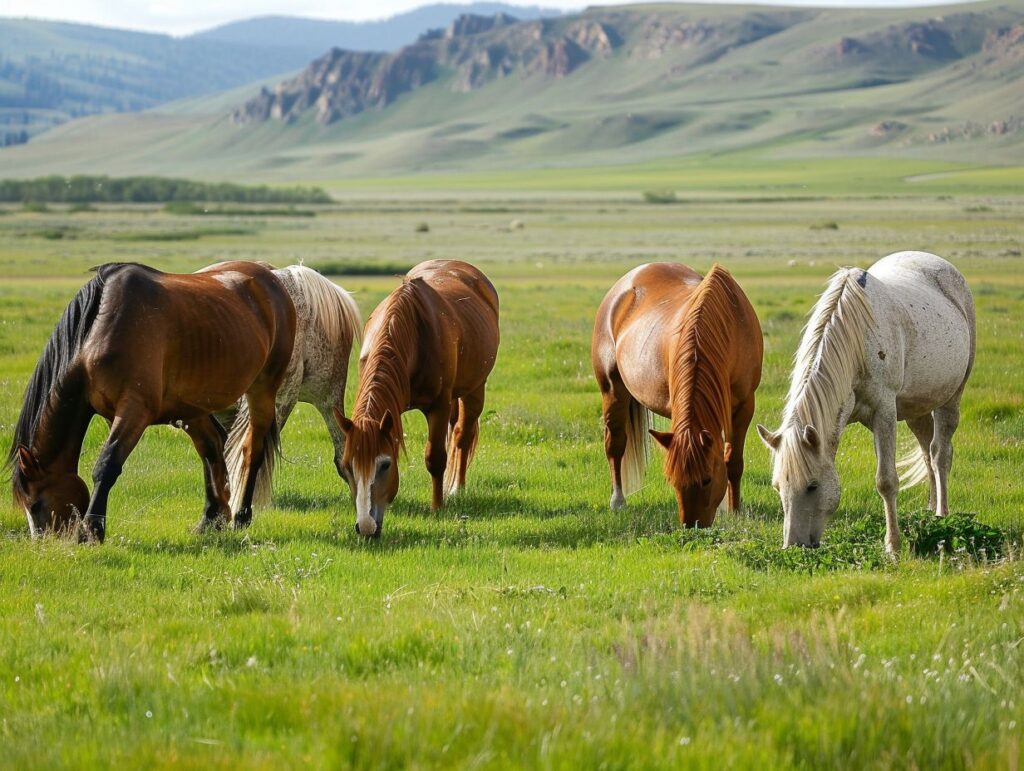Vitamin K is an essential nutrient for horses, playing a crucial role in various bodily functions.
In this discussion, we will explore what Vitamin K is and why it is important for the health of your equine companion. The symptoms of Vitamin K deficiency will be outlined, helping you recognize them, along with the sources of this vital nutrient.
Further, we will delve into the benefits of Vitamin K for horses and provide guidance on safely supplementing their diet. Additionally, we will address potential risks and side effects associated with Vitamin K supplementation, equipping you with the necessary information to ensure your horse’s optimal health.
Understanding Vitamin K for Horses

Understanding Vitamin K for horses is crucial for maintaining their overall health and well-being. Vitamin K, as a fat-soluble vitamin, plays a pivotal role in blood coagulation, bone health, and various metabolic functions in equines.
What is Vitamin K and Why is it Important?
Vitamin K is a vital fat-soluble vitamin that plays a crucial role in various metabolic processes in horses. It is essential for functions such as blood clotting, bone health, and overall equine well-being.
This essential vitamin is responsible for activating clotting factors that are necessary for proper blood coagulation, aiding in effective wound healing and preventing excessive bleeding. Additionally, Vitamin K supports bone metabolism by helping with the synthesis of proteins that are vital for maintaining bone health and strength.
From a physiological standpoint, Vitamin K is integral to the maintenance of tissue and organ health, which contributes to optimal equine function. Understanding how Vitamin K is absorbed, synthesized, and utilized in horses is imperative for preventing deficiencies and promoting overall health and performance in these animals.
Symptoms of Vitamin K Deficiency
Recognizing the symptoms of Vitamin K deficiency in horses is crucial for preventing potential health issues. A deficiency in Vitamin K can lead to impaired blood clotting, which affects vital processes such as coagulation, prothrombin production, and osteocalcin synthesis.
This deficiency can present itself in various ways, including prolonged bleeding from minor wounds, spontaneous bruising, or excessive bleeding during routine procedures. Without adequate Vitamin K, horses may experience delayed wound healing and an increased susceptibility to hemorrhages. Vitamin K is pivotal in the activation of specific proteins essential for bone health and overall immune function, underscoring its importance beyond just blood clotting.
Ensuring proper levels of Vitamin K through diet or supplementation is essential for maintaining hemostasis and averting potential health complications in horses.
Recognizing Signs of Deficiency
For address potential health challenges in horses, it is crucial for you to be able to identify the signs of Vitamin K deficiency. Deficiencies in Vitamin K can have significant impacts on essential processes such as blood clotting, which can result in serious health implications for equines.
Symptoms of Vitamin K deficiency in horses may present as excessive bleeding, prolonged clotting times, or easy bruising. Insufficient levels of Vitamin K can compromise the body’s ability to form blood clots, affecting the coagulation mechanisms and proper wound healing. Vitamin K plays an essential role in the synthesis of various proteins involved in blood clotting.
It is important for you to recognize these indicators early on to intervene promptly. Untreated deficiencies in Vitamin K can lead to severe health issues and compromise the overall well-being of the horse.
Sources of Vitamin K for Horses

Understanding the natural sources and supplements of Vitamin K for horses is crucial for ensuring their dietary needs are adequately addressed. Vitamin K is primarily present in green leafy vegetables and plays a vital role in various biological processes in equines.
Green vegetables like kale and spinach stand out as valuable sources of Vitamin K for horses, offering both Vitamin K1 and K2. Vitamin K1 is commonly sourced from plants, while Vitamin K2 is synthesized by bacteria in the gastrointestinal tracts of ruminants. This synthesis by bacteria, combined with the direct consumption of dark leafy greens, significantly contributes to the availability of Vitamin K in equine diets. Incorporating these nutrient-rich vegetables into horse nutrition not only helps optimize Vitamin K intake but also imparts essential antioxidant properties that support overall health and well-being.
Natural Sources and Supplements
Exploring the natural sources and supplements of Vitamin K for horses can provide valuable insight into maintaining their health. Green vegetables, in addition to specific supplements, offer essential forms of Vitamin K that are vital for the well-being of equines.
These green vegetables, such as kale and broccoli, serve as rich sources of Vitamin K1, which plays a critical role in blood clotting and bone health in horses. Ruminants like cows and sheep contribute to the availability of Vitamin K2 in equine diets through bacterial synthesis in their gastrointestinal tract. Incorporating dark leafy vegetables into a horse’s diet not only ensures sufficient intake of Vitamin K but also delivers antioxidant properties that promote overall health and immunity.
Benefits of Vitamin K for Horses
Understanding how Vitamin K supports horse health is crucial for maintaining their overall well-being. Vitamin K plays a vital role in the coagulation cascade, bone health, and the synthesis of Vitamin K dependent proteins in equines.
By ensuring adequate levels of Vitamin K in a horse’s diet, you can assist in proper blood clotting, which is essential in preventing excessive bleeding during injuries. Vitamin K helps in the absorption of calcium, contributing to strong and healthy bones in horses. These benefits underscore the importance of incorporating Vitamin K supplements into equine nutrition plans to support optimal plasma levels and overall health. With improved blood clotting and bone strength, horses can maintain their physical well-being and be better equipped to handle the demands of their activities.
How Vitamin K Supports Horse Health
The role of Vitamin K in supporting horse health is multifaceted and vital. From ensuring proper blood coagulation to promoting bone health, Vitamin K plays a crucial role in maintaining equine well-being.
This essential vitamin is a key player in the coagulation cascade, where it helps in the activation of clotting factors, enabling horses to effectively control bleeding and prevent excessive blood loss. Vitamin K is involved in bone metabolism, facilitating the incorporation of calcium into bones and ensuring their strength and integrity. Vitamin K is essential for the synthesis of proteins like osteocalcin, which is crucial for bone formation and repair, highlighting its significance in maintaining strong and healthy bones in equines.
Supplementing Vitamin K for Horses

Understanding when and how to supplement Vitamin K for horses is crucial for meeting their nutritional requirements. Vitamin K supplements, such as menadione and menaquinone, can be administered using various methods, including intramuscular injection, to ensure the horse receives adequate micronutrients.
Menadione, a synthetic form of Vitamin K, and menaquinone, a natural form obtained from bacteria in the digestive tract, offer distinct health benefits for horses. Intramuscular injection is a commonly used method for efficiently delivering Vitamin K supplements into the horse’s system. It is important to take into account absorption enhancers and inhibitors in the equine diet to optimize Vitamin K uptake. Enhancers, like fatty acids, can improve absorption, whereas inhibitors, such as specific medications, may hinder the process.
When and How to Supplement
Determining the appropriate timing and method for supplementing Vitamin K in horses is crucial for maintaining their health. Whether utilizing menadione, menaquinone, or other forms of Vitamin K supplements, understanding the correct approach is essential for equine well-being.
Proper Vitamin K supplementation plays a significant role in supporting various critical functions within a horse’s body. Micronutrient intake, including Vitamin K, is vital for optimal equine health. Vitamin K specifically assists in blood clotting, bone metabolism, and overall cardiovascular health in horses.
When contemplating supplementation, it is imperative to thoroughly evaluate the horse’s diet, activity level, and any specific health conditions that may impact their Vitamin K requirements. By thoughtfully incorporating Vitamin K supplements into a horse’s nutrition plan, owners can ensure that their equine companions receive the necessary nutrients to thrive.
Potential Risks and Side Effects
Understanding the potential risks and side effects of Vitamin K supplementation in horses is crucial to ensure their safety and well-being. While Vitamin K is essential for various bodily functions, excessive intake or interactions with medications like Warfarin can lead to adverse effects.
Both Vitamin K1 and K2 play a significant role in maintaining proper liver function, bone health, and clotting mechanisms in horses. An overdose of Vitamin K can disrupt these functions, leading to potential risks such as thrombosis and blood-thinning issues. It is important to be cautious with Vitamin K supplementation, especially in horses on anticoagulant therapy, as it can affect the efficacy of medications like Warfarin and Coumarin.
Regular monitoring of Vitamin K levels, understanding dietary sources, and being aware of potential side effects are essential for keeping equines healthy.
Considerations for Safe Use
Ensuring the safe use of Vitamin K supplements in horses requires careful attention to dosage and potential interactions. Take into consideration monitoring Vitamin K levels, recognizing side effects, and consulting with a veterinarian to maintain equine health.
Regularly monitoring Vitamin K levels in horses is crucial to ensure they receive appropriate supplementation without the risk of overdose. Stay aware of potential side effects such as gastrointestinal disturbances or allergic reactions and promptly address any concerns.
Vitamin K supplements may interact with medications like Warfarin and Coumarin, presenting additional risks if not properly managed. Veterinarians play a pivotal role in advising on the correct dosage and administration of Vitamin K based on the individual needs of each horse, considering existing health conditions and other medications in use.
Frequently Asked Questions

Do horses need vitamin K?
Yes, horses do need vitamin K to maintain their overall health and wellbeing. This essential vitamin plays a vital role in blood clotting, bone health, and other important bodily functions.
How does vitamin K benefit horses?
Vitamin K is necessary for the production of certain proteins that help with blood clotting. It also aids in maintaining strong and healthy bones by regulating calcium levels in the body.
What happens if a horse doesn’t get enough vitamin K?
If a horse doesn’t get enough vitamin K, it may experience excessive bleeding or bruising due to the lack of blood clotting factors. It may also be at risk for developing weak bones and other health issues.
Can horses get vitamin K from their diet?
Yes, horses can get vitamin K from their diet. Fresh green forage, such as grass and hay, is a natural source of vitamin K. Commercial horse feeds also contain vitamin K as an added nutrient.
Do all horses need the same amount of vitamin K?
No, the amount of vitamin K a horse needs may vary depending on its age, weight, and overall health. It’s best to consult with a veterinarian to determine the appropriate amount of vitamin K for your horse.
Are there any risks associated with giving horses vitamin K supplements?
Vitamin K supplements are generally safe for horses when given in the recommended dosage. However, it’s important to be cautious and consult with a veterinarian before administering any supplements to avoid potential adverse effects.


